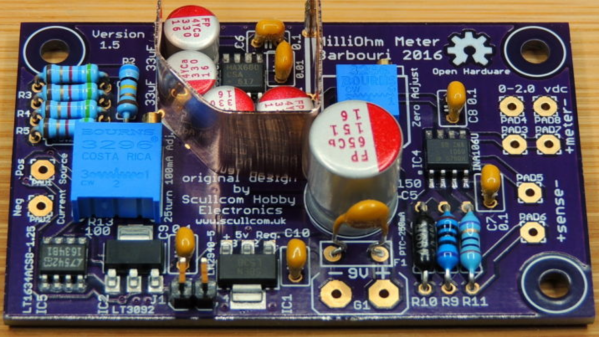A milliohm meter is a very handy piece of test equipment. Most hand-held multimeters cannot measure low resistances and bench meters that can, are usually quite expensive. [barbouri] has shared details of his milliohm meter build on his blog post, and it looks pretty nice.
When using a single pair of leads to measure very low ohms, the resistance of the measuring wires and voltage drops across the various joints become substantial enough to invalidate your measurement. The solution is to use the “Kelvin method” or 4-wire measurement. This involves passing a highly stable current derived from a temperature compensated constant-current source through the unknown resistance, and then using another pair of leads to measure the voltage drop across the resistor, which then gets displayed as a resistance on a voltmeter.
The finished project not only looks good, but is able to measure up to 2Ω with a resolution of 0.0001Ω (that’s 0.1mΩ). The project is originally designed by [Louis] from [Scullcom Hobby Electronics] and [barbouri]’s second iteration adds an improved board layout to the original project.











